Published on: May 23, 2023
The Best Artificial Intelligence Software And Platforms In 2023
Author: Inge von Aulock

Welcome to the thrilling world of artificial intelligence! It’s where what was once thought impossible is now within reach. So if you’re amazed by the latest technological advancements, buckle up for an exciting journey into the future of AI and artificial intelligence software.
In a world where every second counts, AI has become the ultimate lifesaver for millions of people. It takes care of mundane and complex tasks well, provides accurate information for informed decision-making, and significantly improves lives (even saves them).
So, are you ready to explore the most cutting-edge artificial intelligence software and platforms dominating the tech world in 2023? Then, you’ve come to the right place!
This post will guide you through everything you need to know about the latest and greatest in AI technology. Let’s dive in.
What is artificial intelligence software?
AI software is computer program operating systems that can learn, think, and make choices as humans do. They’re made using advanced techniques that allow computers to remember data and improve tasks without being explicitly programmed.
There are two main types of artificial intelligence software: rule-based and machine-learning software. Rule-based systems follow pre-set rules to make decisions based on input data, while cognitive computing software uses math and statistics to find patterns in data and make predictions.
AI software can help businesses automate tasks, make better choices, and find new opportunities. However, some worry it could threaten privacy, security, and ethics.
Some ground rules and standards for developing AI responsibly have to be set. That way, we can ensure it’s done right and doesn’t cause any problems.

Types of artificial intelligence software
Artificial intelligence software has come a long way since its inception, and with advancements in technology, there is now a ton of AI software options available. In 2023, the landscape of AI software will be diverse, with each type offering unique tools and applications. Here are some of the most popular types of artificial intelligence software in 2023:
Google Cloud Machine Language
Google Cloud Learning Machine is a cloud-based platform for building, training, and deploying predictive analytics models. It provides a range of pre-built machine learning (ML) structures and tools that developers can use to create their custom models.
Some of the main tools built on Google Cloud Machine Language include:
- AutoML: It’s a tool suite that enables developers with limited ML expertise to create high-quality models.
- TensorFlow: A popular open-source cognitive computing framework that can be used to build custom models.
- Cloud Vision API: A Google Cloud learning machine that’s already constructed and can automatically examine and categorize images.
- Cloud Natural Language API: A pre-built machine learning model that leverages the Google cloud platform console to classify text.
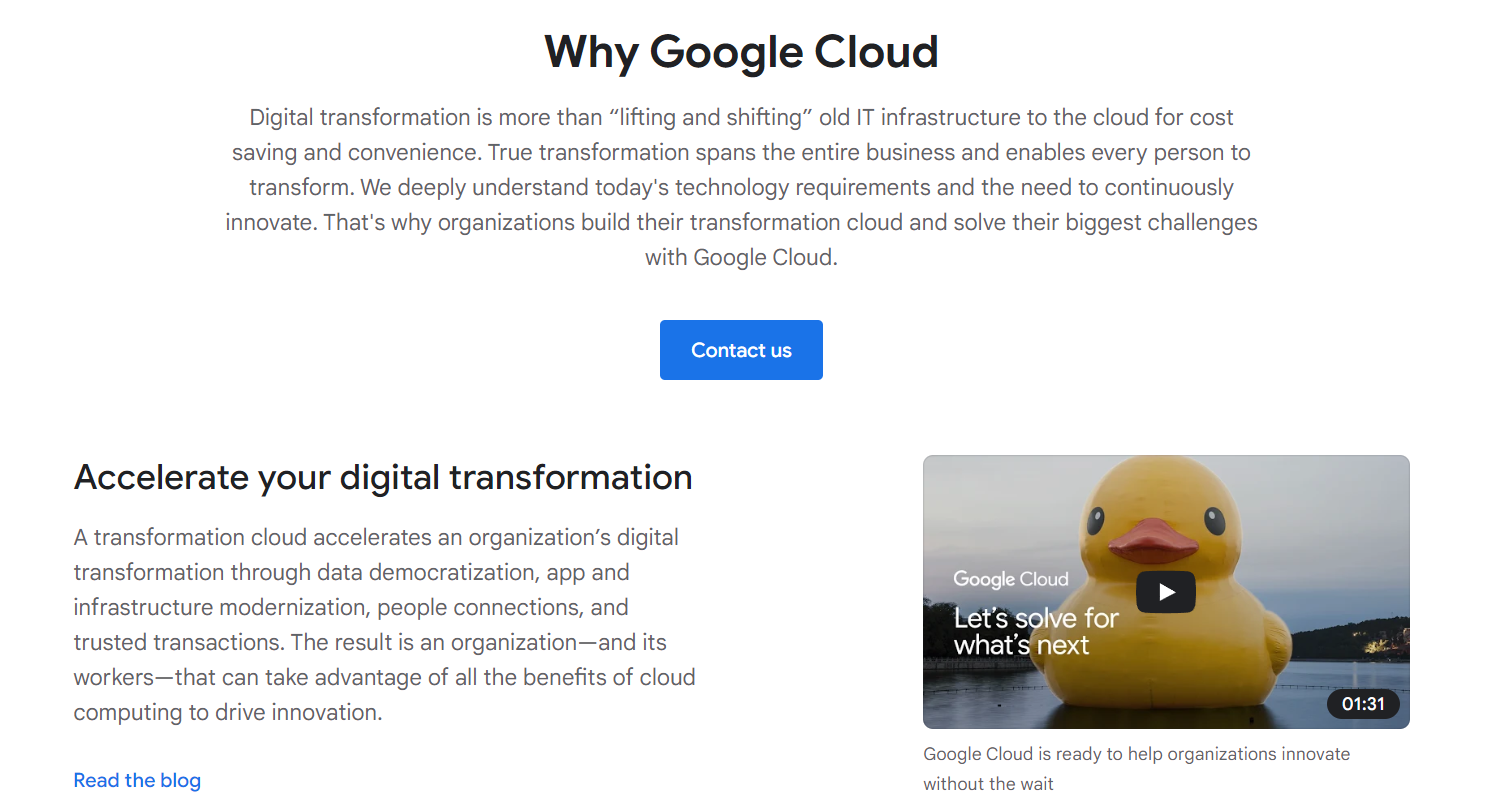
Azure Machine Learning Studio
Azure Machine Learning Studio by Microsoft is another cloud-based platform that empowers developers to build, train, and deploy statistical analysis models. You can easily create custom models tailored to your specific needs with many built-in models and tools.
Some of the main tools built on Azure Machine Learning Studio include:
- Designer: A drag-and-drop interface that enables developers to create data mining models without writing code.
- Automated ML: An ML tool suite that enables developers with limited ML expertise to build high-quality models.
- Deep Learning: A pre-built ML model that can be used to build custom deep learning models.
- Text Analytics: A pre-built ML model that analyzes and classifies text.

TensorFlow
TensorFlow, an open-source machine learning framework developed by Google, can be utilized for constructing a wide range of artificial intelligence models.
Some of the main tools built on this platform include:
- Keras: A high-level neural networks API that can be used to create custom deep learning models.
- TensorFlow.js: A JavaScript library for building within the browser.
- TensorFlow Lite: A lightweight version of TensorFlow that can be used to build ML models for mobile and embedded devices.
- TensorFlow Serving: A server for deploying trained TensorFlow models.
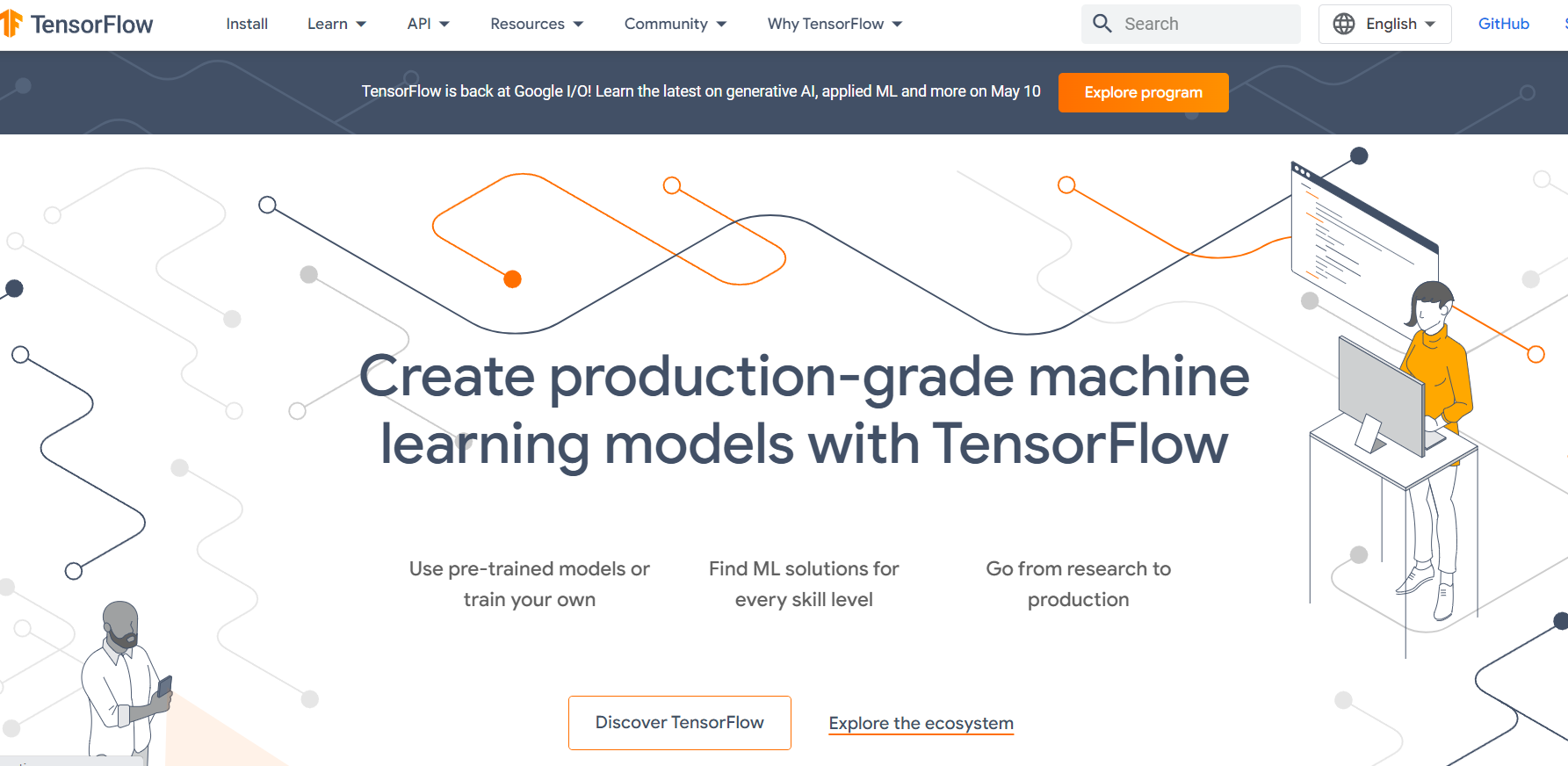
H20 AI
H2O.ai is an open-source machine-learning platform that enables developers to create various machine-learning models, ranging from deep-learning to pre-built ML models. It also offers multiple tools developers can use to design their custom models.
Here are the top tools built into the platform:
- H2O Driverless AI: An AI platform that automates the entire machine learning pipeline, from data ingestion to deployment.
- H2O Sparkling Water: This platform doesn’t just have a cute name – it allows users to create data-driven models on Apache Spark using H2O’s algorithms.
- H2O4GPU: The H2O Python package allows leveraging GPUs to create neural networks with H2O’s algorithms.
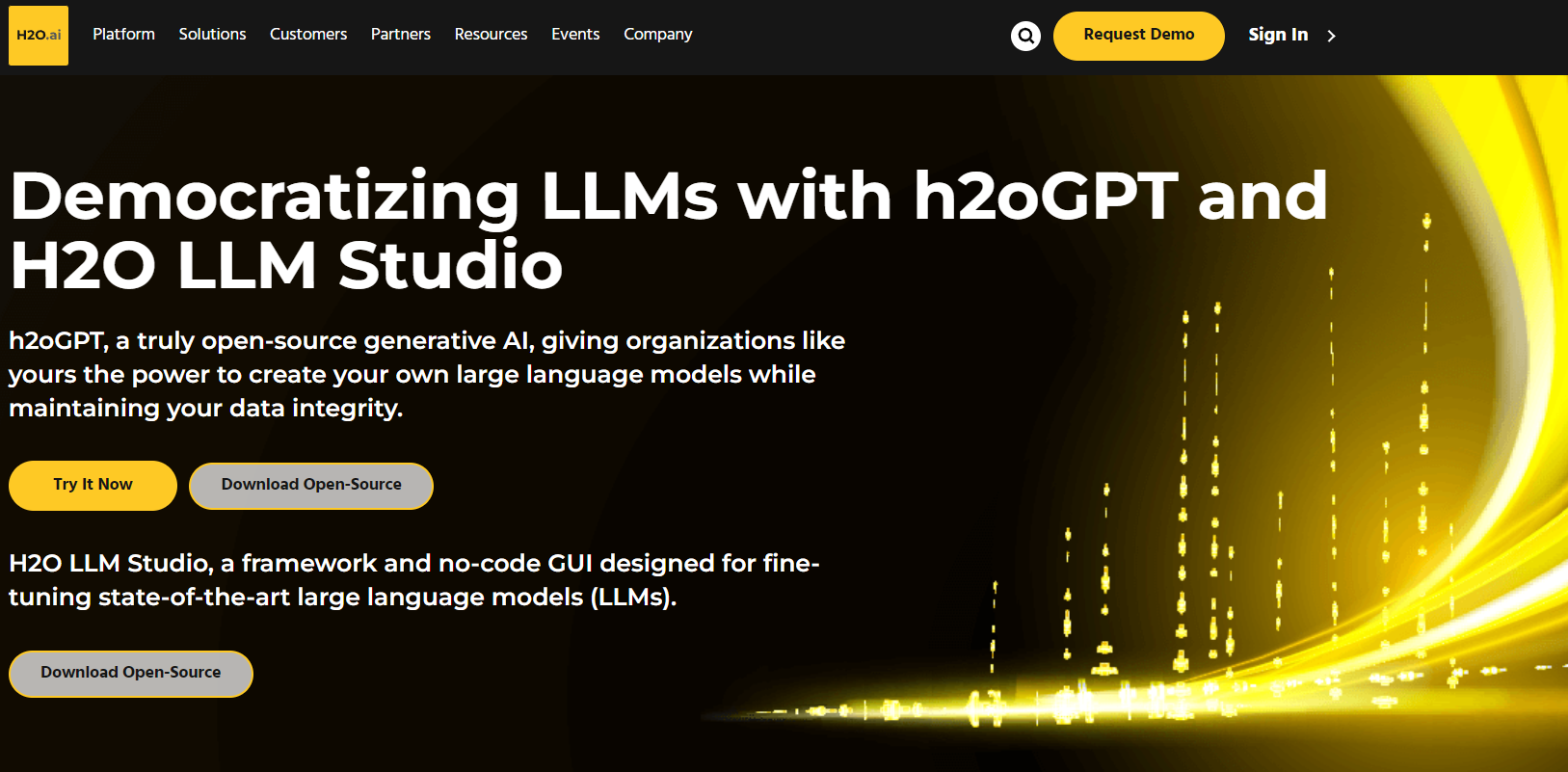
Cortana
Cortana, developed by Microsoft, is an artificial intelligence-based virtual assistant that works with natural language processing (NLP) and machine learning to interpret and react to user queries.
Some of the platform’s main tools are:
- Cortana Skills Kit: A set of tools and APIs that enable developers to create custom skills for Cortana.
- Cortana Intelligence Suite: A suite of machine learning tools and services that enable developers to build custom decision trees.
- Language Understanding Intelligent Service (LUIS): A prebuilt machine learning model that can be used to understand natural language input and extract meaning from it.

IBM Watson
IBM Watson is a comprehensive collection of machine deep learning software tools and services. These tools and services can be used to design many machine-learning models and even allow developers to employ and fabricate personalized models.
Here are IBM Watson’s main tools:
- Watson Studio: A cloud-based platform for building, training, and deploying algorithmic models.
- Watson Assistant: A virtual assistant that uses NLP and machine learning to understand and respond to user queries.
- Watson Discovery: A tool that can extract insights from unstructured data, such as text and images.
- Watson Language Translator: A pre-built machine learning model that can translate text from one language to another.
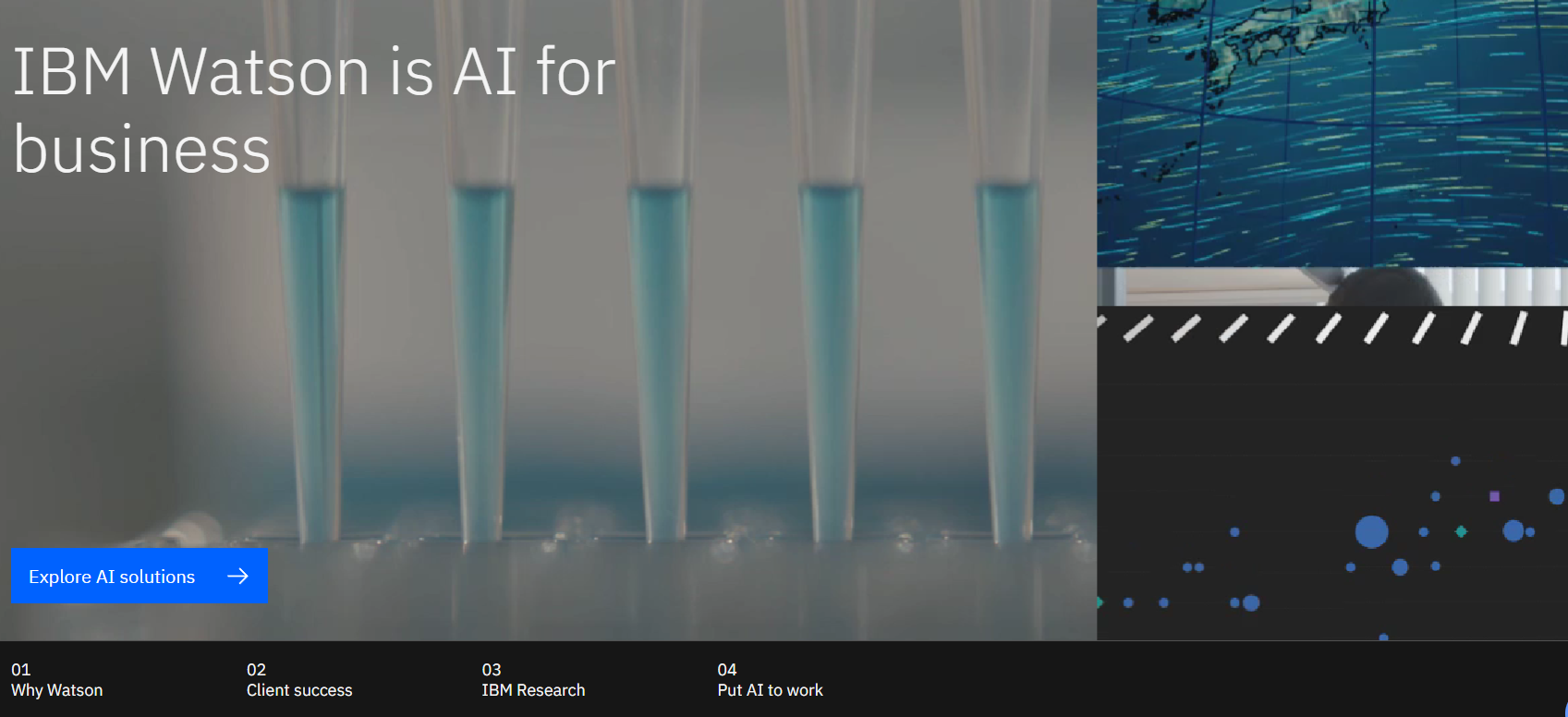
Salesforce Einstein
Salesforce Einstein is a platform that uses machine learning algorithms and artificial intelligence-powered NLP technologies. It is artificial intelligence that assists businesses in making more informed decisions by automating tasks, delivering customized and improved customer service experiences, and delivering insights.
Salesforce Einstein tool highlights are:
- Salesforce Einstein Analytics: It’s a powerful tool designed to help businesses gain valuable insights from their Salesforce CRM data. It offers a range of interactive dashboards, reports, and visualizations that can be tailored to meet the specific needs of any organization.
- Salesforce Einstein Prediction Builder: With this tool, businesses can easily create custom statistical models without requiring coding skills. This tool enables users to predict customer behavior, identify sales opportunities, and assess churn risk, among other things.
- Salesforce Einstein Next Best Action: This tool uses advanced machine learning algorithms to analyze customer data and recommend the best next steps in real time, helping businesses to enhance customer satisfaction and drive revenue growth.
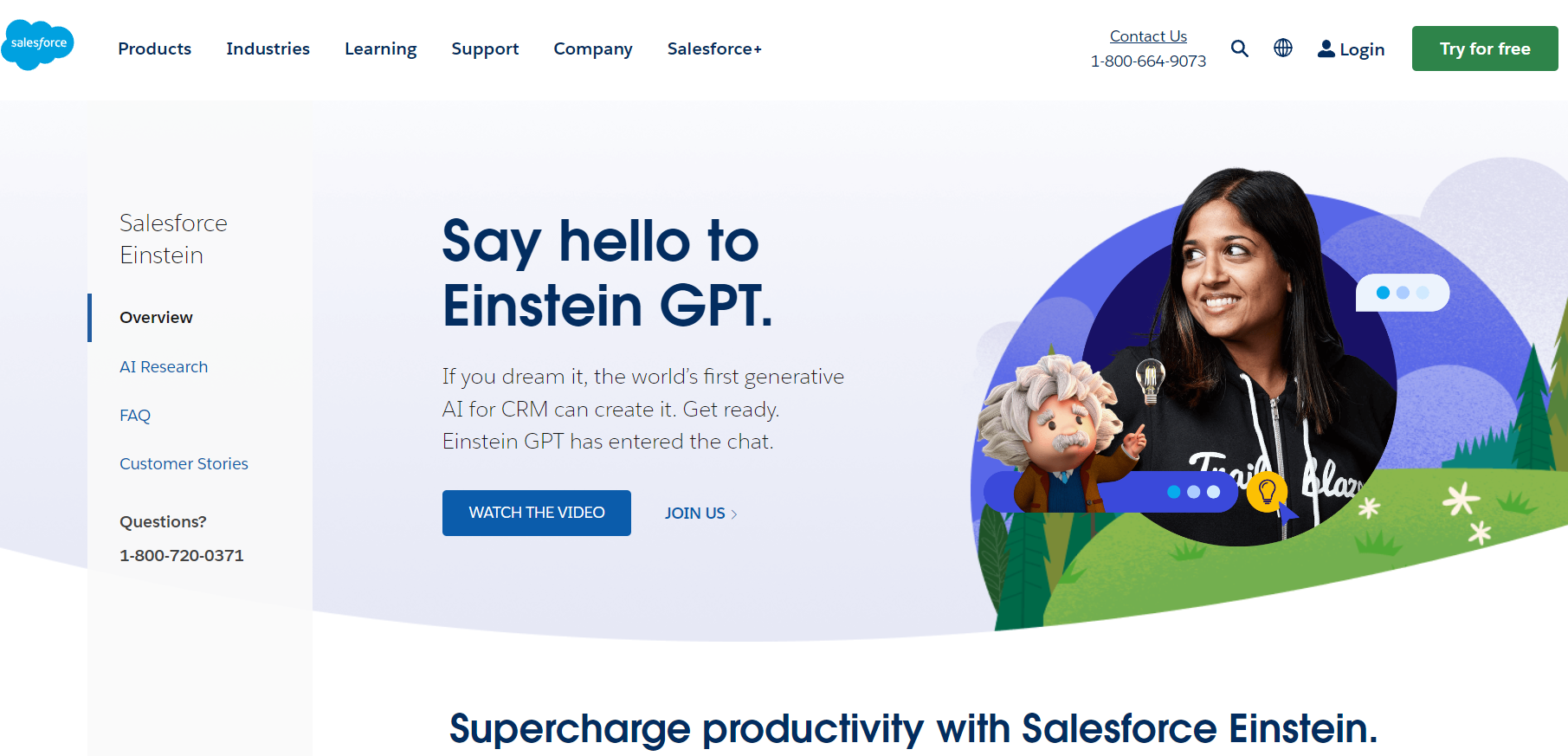
Infosys Nia
Infosys Nia is an AI-powered data science platform that helps businesses automate processes, improve efficiency, and reduce costs. It uses natural language processing technologies, machine learning, and cognitive automation to analyze data and provide insights.
Some of the main tools built on Infosys Nia are:
- Infosys Nia Knowledge Management: This tool helps businesses manage and share knowledge. It uses machine learning to analyze documents and extract relevant information, making it easier for employees to find the necessary information.
- Infosys Nia Chatbot: This tool allows you to create custom chatbots that can be used to interact with customers and employees. It uses NLP to understand user questions and provide relevant responses.
- Infosys Nia Automation: If you need to automate repetitive tasks such as data entry, document processing, and customer service, this tool works well. It uses cognitive automation to mimic human decision-making and complete tasks faster and more accurately.

Google Assistant
Google Assistant is an AI-powered virtual assistant to help users set reminders, play music, and answer questions. How does it work? It uses natural language processing and machine learning to understand user queries and provide relevant responses.
Some of the main features of Google Assistant are:
- Google Assistant for Business: This technology enables organizations to create personalized voice apps for customer interaction. It can deliver information, schedule appointments, and place orders.
- Google Assistant SDK: Developers can use this tool to create custom speech apps that can be integrated with Google Assistant. It offers the ability to program custom voice commands for smart home gadgets, automobiles, and other IoT devices.
- Google Assistant Interpreter Mode: With this artificial intelligence tool, users can translate conversations in real time. It may be used for corporate meetings, customer service engagements, and international travel and supports over 30 languages.
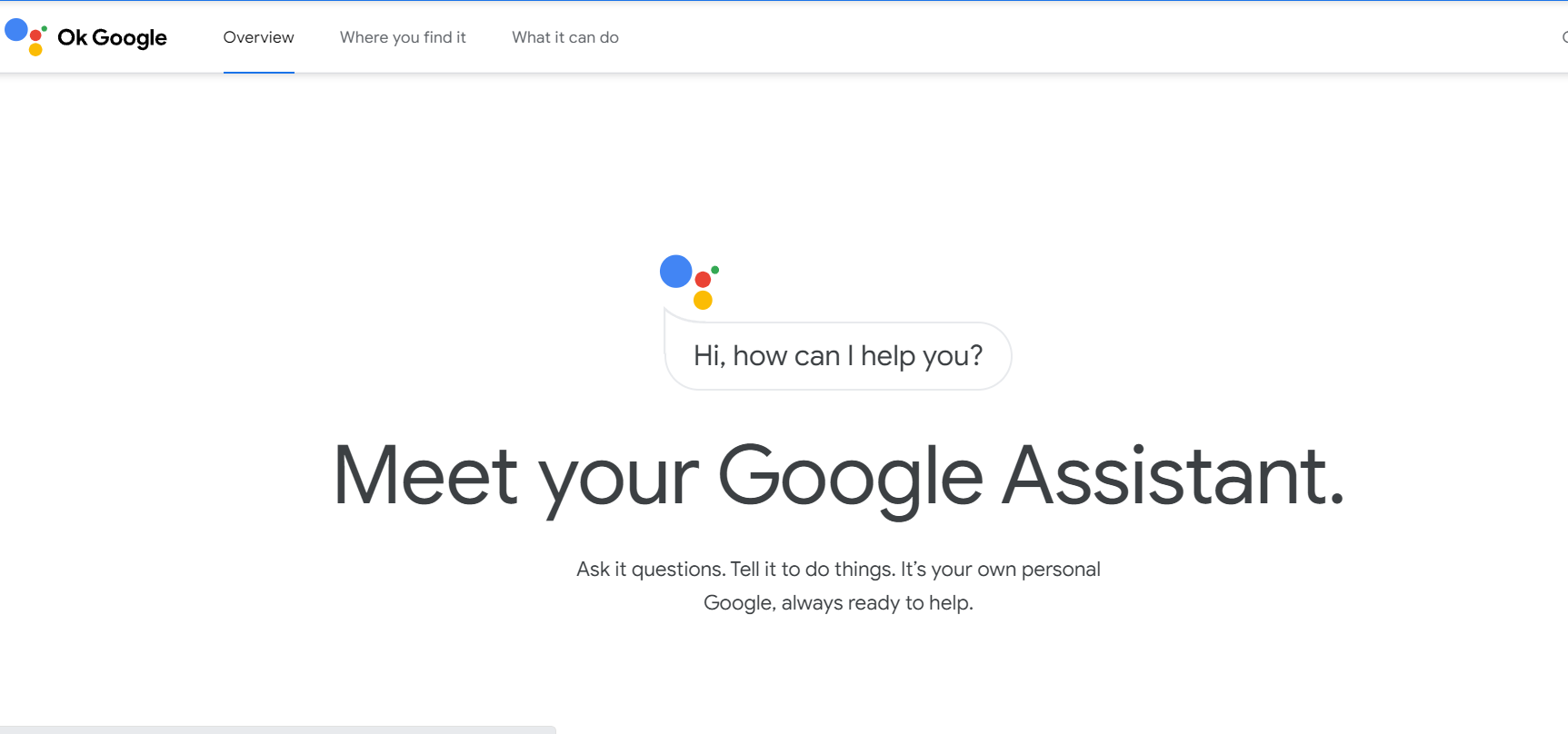
How AI software can be used
Artificial intelligence software is a powerful technology used in various industries to streamline processes, improve efficiency, and enhance decision-making. Here are some examples of how artificial intelligence is being used in different sectors:
- Recruitment
Chatbots and AI algorithms are transforming the recruitment process. Chatbots are increasingly used to answer questions and perform preliminary interviews, while AI algorithms may evaluate resumes, cover letters, and online profiles to discover the best candidates.
Furthermore, artificial intelligence can evaluate employee data to identify success trends and data patterns of potential prospects, allowing firms to make educated labor decisions.
- Marketing
Artificial intelligence is making an impact in marketing by allowing marketers to optimize campaigns and boost customer engagement. AI-powered systems can monitor customer activity patterns and forecast future behaviors, allowing marketers to design customized campaigns that customers respond to.
And on top of this, AI can automate tedious processes like emails, follow-ups, and scheduling, so marketers can focus on more strategic projects.
In addition to marketing, AI software like Salesforce Einstein is revolutionizing sales processes and is only one of the ways AI is influencing the sales industry.
- Transportation
By enabling autonomous driving and improving supply chain management, AI alters transportation. For example, AI systems can examine weather trends, traffic patterns, and other variables to improve routes and save transportation costs.
Also, AI-powered sensors can track the health of cars and notify service teams when repairs are required, enabling companies to run more effectively and give customers better service.
- Security
AI is essential for enhancing security and safety. License plate recognition and facial image recognition can improve physical security, and AI systems can spot irregularities in financial transactions and notify security staff of possible fraud.
Organizations may also detect and follow suspicious human behavior with the aid of AI-powered security cameras and facial recognition, preventing potential risks from worsening.
- Finance
AI revolutionizes finance by providing more precise risk assessments, fraud detection, and individualized investment recommendations. In addition, AI algorithms can examine financial data to find patterns and forecast market trends, leading investors to make better investment choices.
Chatbots powered by these artificial intelligence software tools can also offer tailored financial advice to clients based on their unique needs and objectives, boosting the client experience and fostering client loyalty.
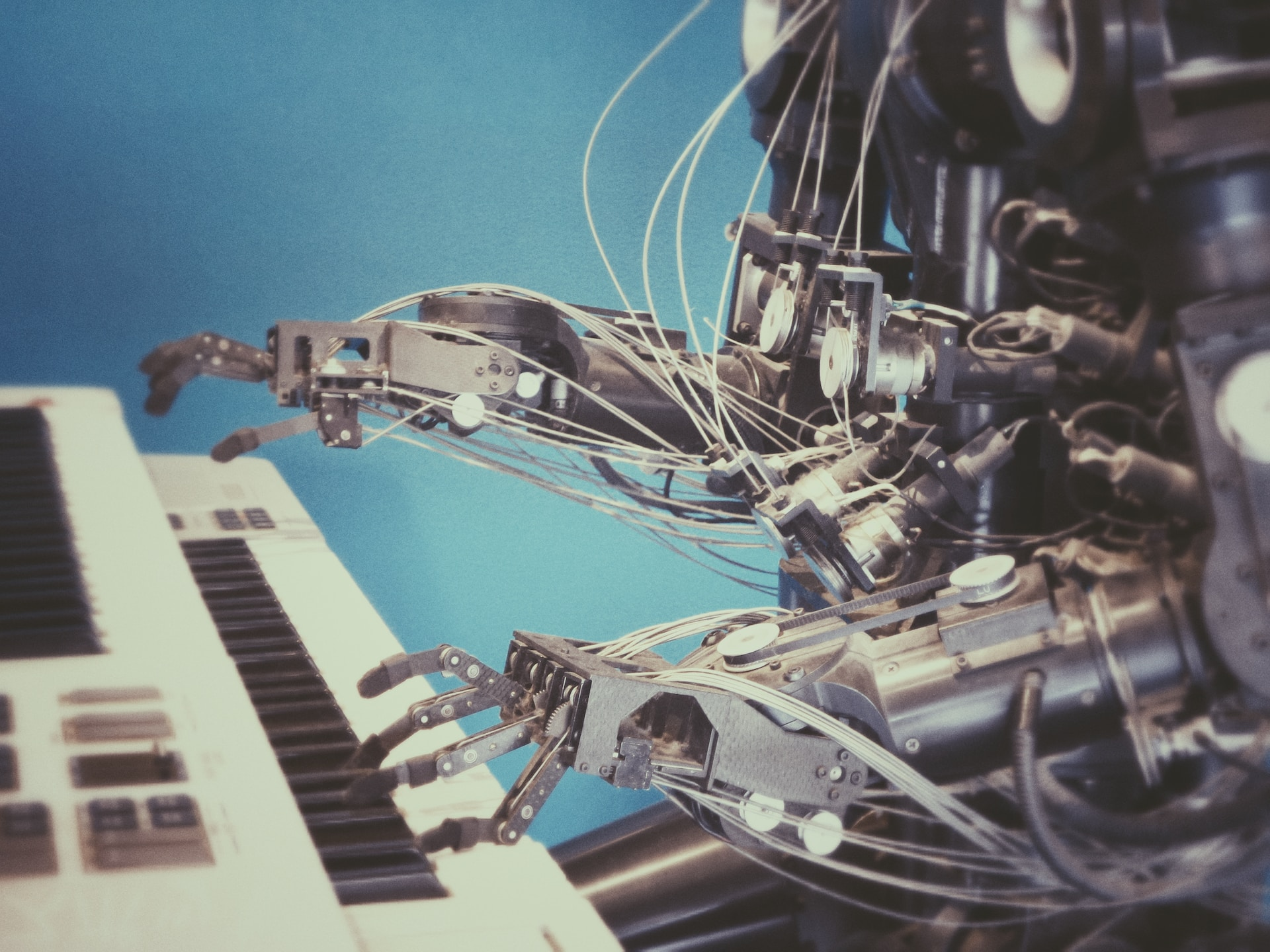
Why AI is being used?
AI is increasingly used across various industries due to its ability to process and analyze vast amounts of data quickly and accurately. Its automation capabilities also help improve efficiency and productivity – that’s not really up for debate. Here are some reasons why:
Predictive functionality
AI’s predictive functionality is one of its most valuable benefits, enabling businesses to analyze huge data sets and identify patterns and trends. By providing insights based on data-driven analysis, AI can help companies make more precise predictions about future outcomes.
This same data science analysis empowers businesses to make better-informed decisions regarding strategic planning and operational efficiency, reducing their reliance on intuition and guesswork.
With AI-generated insights, companies can have greater confidence in their decision-making processes, leading to improved outcomes and increased competitiveness.
Automation
AI-powered automation is revolutionizing how businesses operate by making day-to-day tasks more efficient and allowing employees to focus on more important work. For instance, in manufacturing, AI can automate quality control checks, while in healthcare, it can speed up medical diagnosis, giving patients a greater chance of recovery.
The benefits of automation are immense for companies. By automating repetitive tasks, businesses can save time, increase productivity, reduce costs, and improve overall efficiency. As AI technology advances, it can even automate more complex tasks.
With the help of AI-powered robotic process automation software and process optimization, employees can concentrate on tasks that matter, such as making strategic decisions and solving big problems. This unleashes their full potential, leading to significant successes for the company.
Decision-making
It’s exciting to see how AI is transforming decision-making in various industries. With its computer vision, lightning-fast data processing, and analytical capabilities, AI can identify patterns, predict outcomes, and provide insights to aid decision-making. For example, investment managers can use AI to analyze market trends and decide which stocks to buy and sell.
But here’s the thing – AI should never replace human decision-making entirely. Instead, it should be viewed as a powerful tool to support the human brain and enhance our decision-making abilities. After all, AI can analyze data and recognize patterns, but it can’t replicate human intuition, knowledge, empathy, and experience.
And that’s not all. Ensuring that the algorithms used in decision-making are transparent, unbiased, and accountable is critical. This way, we can be sure that AI-driven decisions are fair, ethical, and aligned with the organization’s values and goals.
Mundane tasks
AI can do more than fulfill our sci-fi fantasies of a robot-led future. It can help businesses automate tedious and repetitive tasks, freeing human workers to focus on higher-value activities requiring creativity, critical thinking, and problem-solving skills.
AI technology can also improve accuracy and efficiency by automating routine tasks such as quality control checks or medical diagnoses. AI writing software is also a great tool for businesses, bloggers, and anyone looking to tell a story. However, it’s crucial to remember that AI is not intended to replace human workers across the board but to enhance their work.
By allowing AI-powered automation to handle repetitive and mundane tasks, employees can devote their energy to activities that require human intuition and decision-making skills.
Conclusion
AI software is truly a game-changer for businesses worldwide. It’s already transforming multiple industries, including healthcare, finance, retail, transportation, and manufacturing, and it shows no signs of slowing down anytime soon.
What’s exciting is that AI-generated insights enable companies to make more informed decisions, leading to better outcomes and increased competitiveness. But the good news for the average person is that AI isn’t meant to replace human workers. Instead, it’s designed to enhance their work and make their jobs more accessible and fulfilling. This, in turn, benefits the company as well.
Looking to the future, the potential for AI is limitless, and we’re only starting to scratch the surface of what it can do.
So, don’t miss out on the AI bandwagon – there’s so much to gain from it, and it’s only getting better with time.
FAQs
What is AI software?
AI software is computer software that imitates human intelligence and is capable of performing tasks that in computer science would typically require human reasoning and programming skills.
What industries is AI used in?
Artificial intelligence has been revolutionizing industries worldwide with its predictive insights, top artificial intelligence software, and ability to automate tasks. In healthcare, AI software helps doctors provide better and faster diagnoses, and in finance, artificial intelligence can assess market trends.
AI software is also used in retail to customize customer experience and streamline inventory management. In transportation, self-driving cars and real-time data make travel more efficient.
What are the main benefits of AI software?
AI software helps to quickly analyze large amounts of data and guide the decision-making process. It can automate repetitive tasks to free up time, increase security using facial recognition, and analyze customer behavior to create positive retail experiences.
What are the main types of AI software?
You probably don’t know it, but artificial intelligence software is everywhere. The main types of AI software include:
- Machine learning: Algorithms are used in this artificial intelligence software to learn from data and develop over time. Natural language processing and picture identification are typical jobs involving artificial intelligence software.
- Natural language processing (NLP): NLP is an AI software that is capable of understanding and analyzing human language. It is commonly used in various applications, such as chatbots and virtual assistants. One notable example of NLP is the Nvidia deep learning AI.
- Robotics: Robotics combines engineering, computer science, and AI software to develop intelligent machines that perform tasks autonomously, whilst ongoing works continue to enhance robotics’ adaptability and versatility for the future.
- Expert systems: Expert systems, also known as knowledge-based systems, use a combination of artificial intelligence software, pattern recognition, data entry, and NLP to mimic the decision-making process of a human expert.
Inge von Aulock
I'm the Founder & CEO of Top Apps, the #1 App directory available online. In my spare time, I write about Technology, Artificial Intelligence, and review apps and tools I've tried, right here on the Top Apps blog.
Recent Articles

Microsoft servers are down. Your business grinds to a halt. Panic sets in. Stop. Breathe. You’ve got this. This guide gives you 7...
Read More
As a business leader, you’re always searching for ways to stay ahead of the competition. What about AI in marketing and sales? In...
Read More
Struggling to keep up with the competition in 2025? You’re not alone. Small and medium enterprises (SMEs) are facing a rapidly evolving business...
Read More